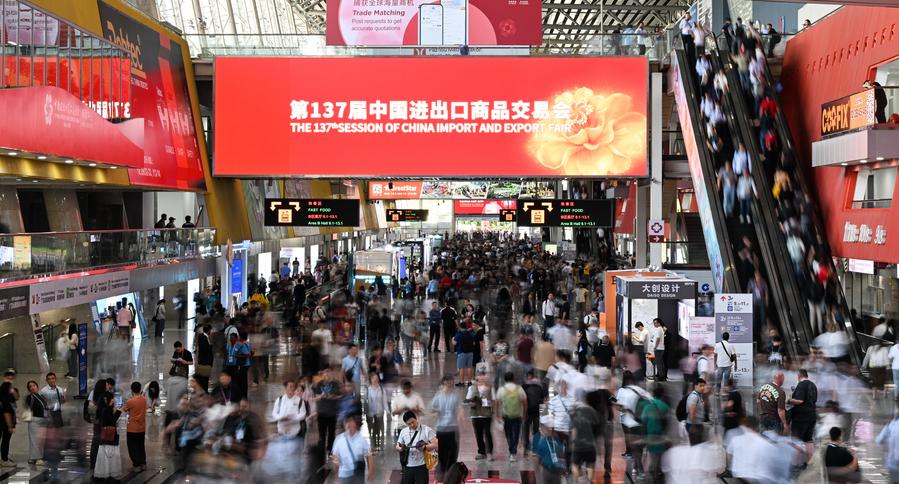
Airport introduces new range of travel services
Guangzhou Baiyun International Airport has introduced a range of services aimed at providing seamless and greater travel convenience for both exhibitors and visitors to the Canton Fair. During the event, the services, available at the service counters of the Canton Fair Complex, include check-in assistance, luggage handling, and flight and ticket inquiries. In addition, the counters offer bookings for hotels, rental cars, tours, and tickets to local attractions. Moreover, the airport operates a shuttle bus service between the airport and the Canton Fair Complex during the event.
Airline boosts flights to support event
China Southern Airlines has announced a significant increase in flight operations and passenger services to meet surging travel demand during the 137th Canton Fair. The airline plans to operate more than 15,600 flights in and out of Guangzhou during the trade show, marking an 18 percent increase from the previous session. The airline plans to operate 12,400 domestic flights, with added capacity on key routes to destinations such as Beijing, Shanghai, Hangzhou, Yiwu and Taizhou. More than 1,300 flights will utilize China-made aircraft including the C919 and ARJ21. On the international front, the airline will run nearly 3,300 flights to major hubs including Bangkok, Kuala Lumpur, Dubai, Paris and Amsterdam, supporting trade partners from Southeast Asia, the Middle East, Europe and Oceania.
Cuisine carnival kicks off cultural feast
The vibrant "Food in Guangzhou "Canton Cuisine Carnival started at the Canton Fair Complex on Tuesday, coinciding with the opening of the 137th Canton Fair. The 15-day culinary extravaganza, held for the first time at the Canton Fair, is expected to attract attendees from across the globe, offering an immersive international experience that blends culinary delights with cultural performances. The carnival features nearly 40 renowned dining establishments, including Guangzhou's time-honored brands, Cantonese cuisine specialists, intangible cultural heritage food vendors, Michelin-starred restaurants and trendy beverage brands. In addition to gastronomic offerings, the festival includes cultural performances and interactive ICH experiences.
Trade-in campaign for overseas nationals
Guangzhou has introduced a comprehensive trade-in campaign designed for foreign nationals, as well as residents from China's Hong Kong, Macao and Taiwan. The initiative aims to enhance the consumption experience for overseas guests and highlight the city's appeal as an international consumer hub. The yearlong campaign offers subsidies across six major categories: automotive trade-ins, home appliances, 3C digital products, electric bicycles, home renovation, and home modifications. Eligible applicants can receive subsidies of up to 20,000 yuan ($2,740) per transaction. To qualify, applicants must possess valid identification documents, such as the Mainland Travel Permit for Hong Kong and Macao Residents, the Mainland Travel Permit for Taiwan Residents, or the Foreign Permanent Resident ID Card. They must also have a mainland mobile phone number and a bank account within the country.
FTZ sees 749.39b yuan in foreign trade in 2024
The Guangdong Pilot Free Trade Zone recorded 749.39 billion yuan ($102.57 billion) in imports and exports in 2024, marking a robust year-on-year rise of 25.6 percent. This figure accounted for 8.2 percent of Guangdong's total foreign trade value and contributed 1.8 percentage points to the province's overall foreign trade growth. This year marks the 10th anniversary of the Guangdong FTZ's establishment. Over the past decade, customs authorities have launched 68 replicable innovations to enhance the FTZ's operational efficiency. Under the port cooperation model, the average cargo dwell time has been reduced from between five to seven days to less than two days, saving enterprises more than 220 million yuan in logistic costs annually.


